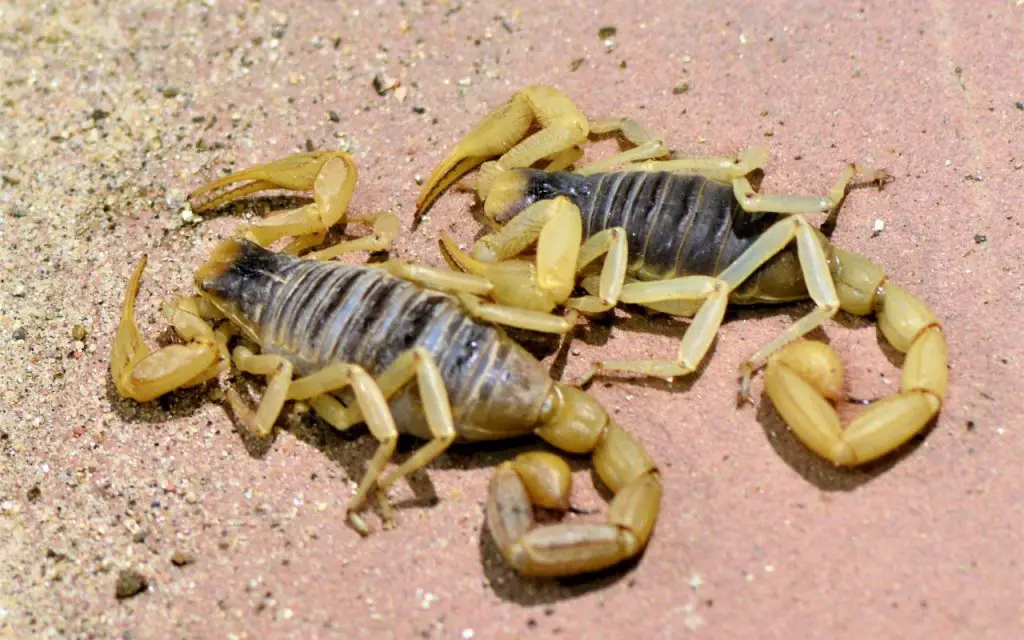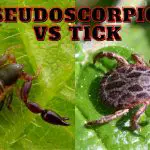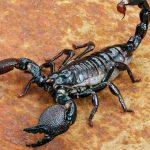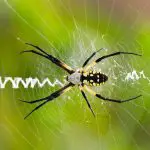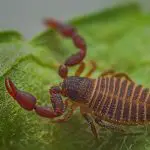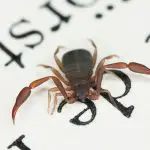Why are scorpions important? Because they are predators, and as such play a vital role in pest control, and in regulating ecosystems around the world…

Despite their terrifying look, scorpion stings are generally safe for humans, and further treatment is typically not required for healthy adults.
However, scorpion bite can be highly unpleasant, and they can cause regional pain or burning, swelling, numbness mixed with tingling sensations, and severe muscular cramps. These symptoms can last for many hours after the sting.
The painful sting may feel like bee stings. The amount of venom may also affect the nervous system.
People who are not sensitive to scorpion venom may only experience momentary discomfort if they are stung by one. The presence of scorpions in natural settings is generally favorable.
Young children may be affected by the stings. Immediate medical treatment and medical attention must be offered and the sting site must be observed.
Because scorpions are predators, they consume a wide variety of scorpion species that may be considered a nuisance. Because certain scorpions eat other scorpions, they play a vital function in the ecology by helping to potentially limit populations of pests such as insects, spiders, and other arachnids.
Using scorpion venom as a potential treatment for various medical ailments is another possible benefit of these creatures.
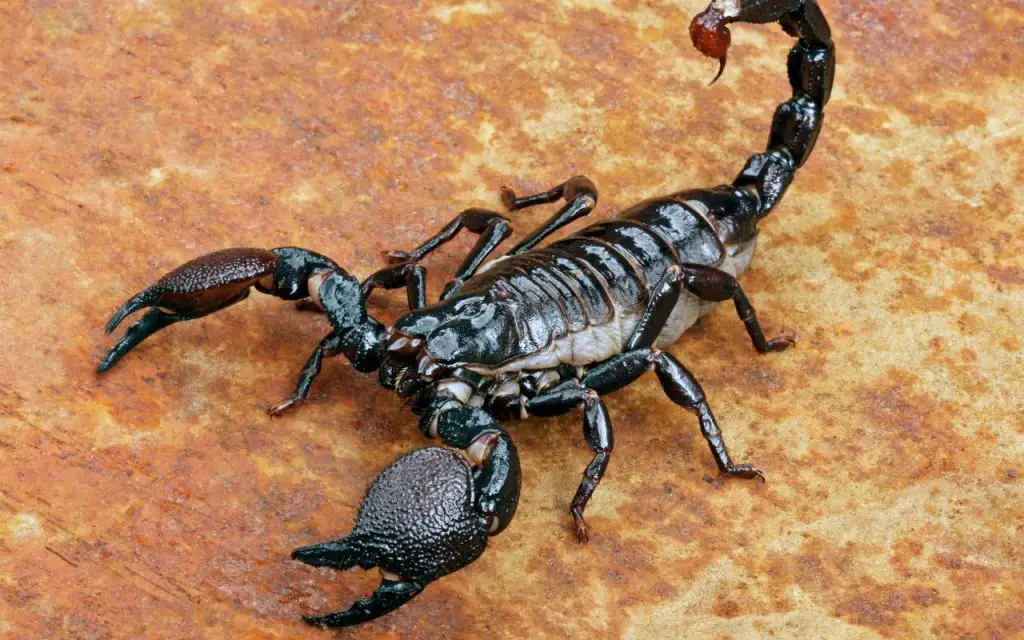
What would happen if scorpions went extinct?
Scorpions have been present on this planet for very long periods and are among the very earliest animals to have adapted to life on land, which occurred around 420 million years ago.
There is proof in the form of fossil records that the historical period of a sea scorpion reached lengths of up to one meter (3.3 feet).
Scorpions are common in many parts of the world, but because of their nocturnal and reclusive behavior, they are rarely observed by humans. Despite this, several civilizations have stories about the supernatural abilities of scorpions.
Some people believe that scorpions would kill themselves if they feel threatened by fire by stinging themselves. This is not accurate because they are resistant to the effects of their own poison.
If scorpions became extinct, our natural world would be deprived of the advantages that scorpions provide.
Scorpions prey capture on pests. Some scorpions eat other scorpions, which may help reduce bug, spider, and arachnid populations. Scorpion venom might be used to treat medical ailments.
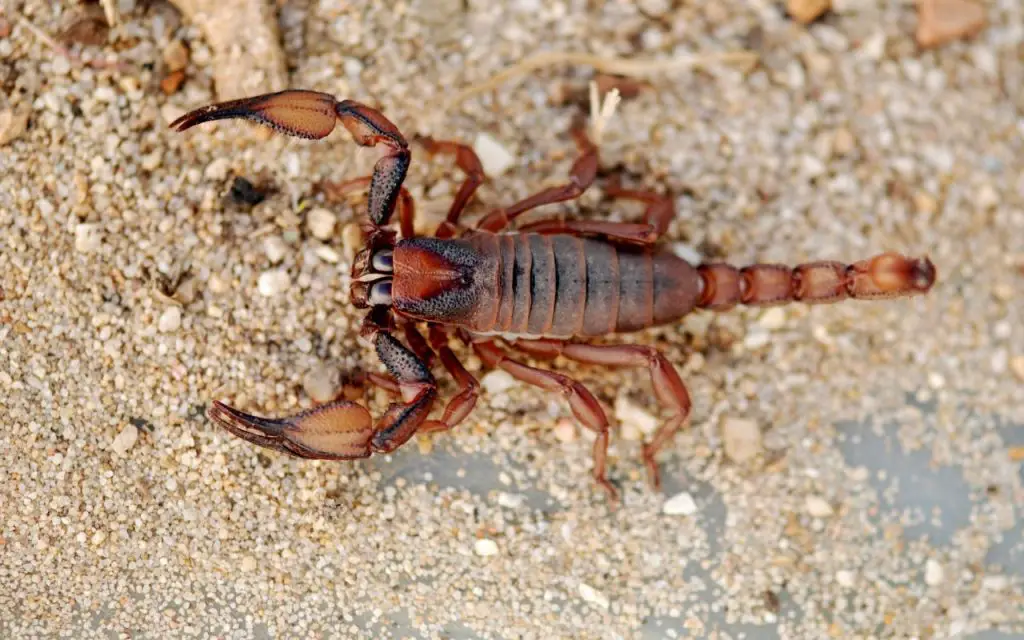
Are scorpions going extinct?
Although certain species of scorpions are harder to find than others, the order is not threatened with extinction. There are some species, such as the Emperor Scorpion, that are protected so that collectors cannot take an excessive number of specimens from their natural habitat.
CITES, which stands for the Convention on International Trade in Endangered Species, is an organization that works to create multi-national conservation agreements. They help reduce the risk of extinction for various species of flora and fauna involved in international trade.
It is now necessary to get special permission to introduce emperor scorpions (Pandinus imperator) into the United States of America. Other nations that are participating in this program may also need this permission.
This helps regulate the number of scorpions that are taken from their native habitats.
What does a scorpion eat?
Scorpions eat insects, spiders, mice, and lizards.
Many scorpions find hiding places beside their burrow with pedipalps exposed and stingers elevated for food. Others hunt or dig pitfall traps on the sand. Scorpions may catch a flying bug with their pedipalp hairs.
Once within reach, the pincers smash the victim. Most scorpions only utilize their venom glands when necessary since it requires a lot of energy.
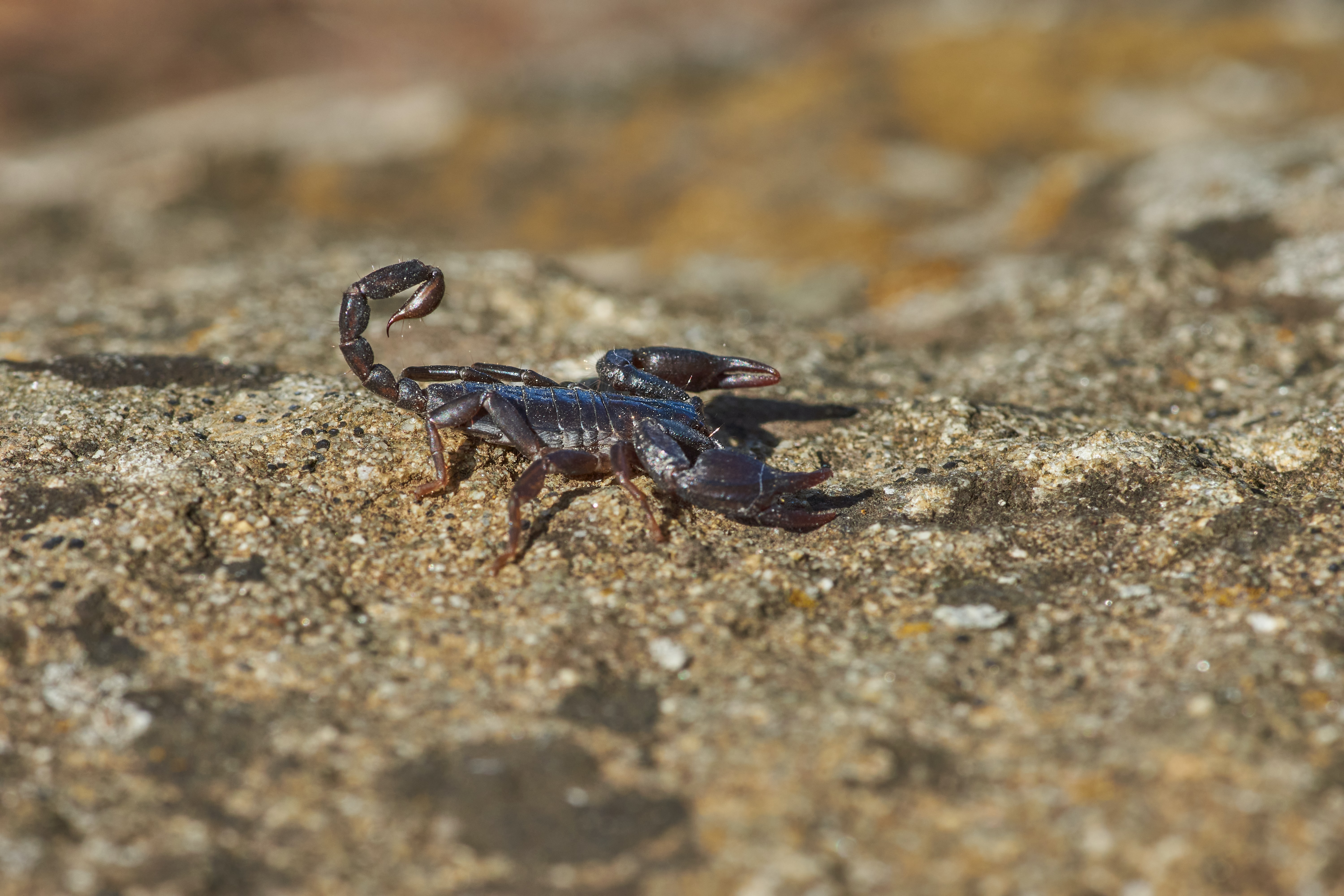
Younger, smaller scorpions may utilize their stinger more. Scorpions have small mouths and can only drink the liquid. Thus, food is crushed and drenched in enzymes that break down the prey’s insides.
Scorpions don’t eat every day as we do and can live for 12 months without food if they have water source. Scorpions keep bug numbers low in their ecology by eating every two to three weeks.
What eats scorpions?
Mammals, birds, and arthropods are examples of some of the most prevalent types of creatures that consume scorpions.
The following is a list of animals that hunt scorpions for a living:
- Meerkats
- Shrews
- Mongooses
- The Southern Grasshopper Mouse
- Owls
- The Southern Ground Hornbill
- Bats
- Tarantulas
- The Amazonian Giant Centipede
- Cane Toads
- Cats
- Chickens
- Hawks
- Mearn’s Grasshopper Mice
Do snakes eat scorpions?
Even though they are venomous predators, scorpions are actually perfect prey because of their size and availability. Snakes are among the animals that prey on scorpions and are known to be among their predators.

Several non-venomous snake species, including gopher snakes, king snakes, and black-headed snakes, are known to consume scorpions.
Economic importance of scorpion
Scorpions are almost universally regarded as helpful creatures, and as a result, their presence poses no threat to the economy.
Because scorpions are so terrifying to many people who come into contact with them, public and tenant relations pose the most significant economic risk. In scarce circumstances, their population may explode into enormous numbers, which may need specialized methods of pest management.
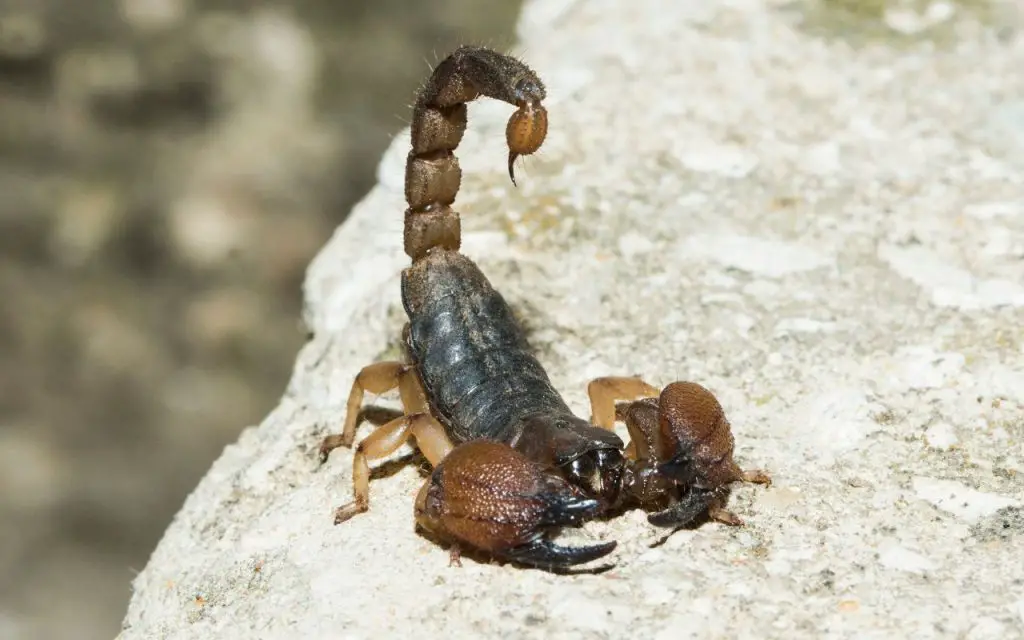
How do scorpions benefit humans?
Humans use scorpions in various applications, including medicine, food, and even pets.
Numerous studies have shown that scorpion venom is an excellent pain reliever and therapy for various ailments, including lupus and rheumatoid arthritis.
Now, researchers at Stanford University and in Mexico have discovered that a scorpion that lives in Eastern Mexico possesses venom peptides that may have antimicrobial capabilities.
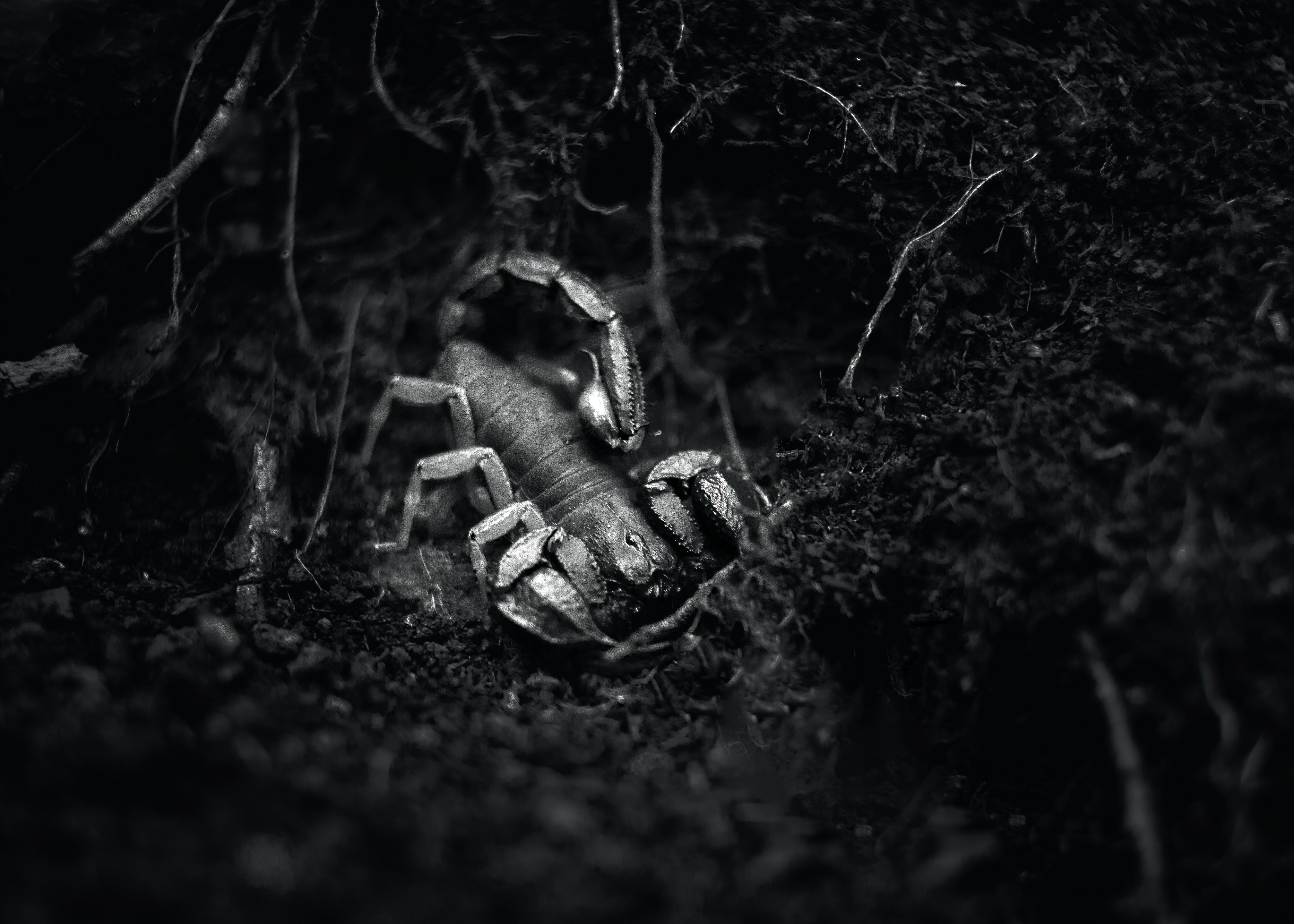
In the most recent study, researchers attempted to separate the individual chemical components found in scorpion venom. They recreated those components in the laboratory to create synthetic chemical analogs of the venom.
Both the naturally occurring venom and the synthetically produced form of the venom were successful in eliminating germs in the mice, including drug-resistant strains of the TB bacterium and staphylococcus.
Interesting facts about scorpions
- The average lifespan of a species might vary greatly depending on its kind. The majority of people live between 4 and 25 years.
- The metabolism of a scorpion may be slowed down. It is possible for the animal to go a whole year without eating, allowing it to endure periods of time when food is limited.
- They sleep during the day and are active at night, searching for food. They go to sleep during the day and hunt at night.
- Lizards, rodents, birds, and possums are just a few of the animals that prey on scorpions.
- They have poor vision. Therefore, they rely mostly on their senses of touch and smell.
- Scorplings, or young scorpions. ride on their mother’s back until the first molt. This means they ride there mother’s back.
- Scorpions do not pose a significant threat to human beings. Only 25 of the over 2,000 species of scorpions that may be found around the globe are known to generate potent, lethal venom to an adult.
- A female Arizona Bark Scorpion gives birth to about 35 little scorpions.
- Scorpions demonstrate a spectacular scene when shown under UV light. When under ultraviolet light, scorpions glow.
- The biggest scorpion in North America is the Arizona Desert Hairy Scorpion.
- You can go into the scorpion habitat at night with a black light and make their victims light up when they look at it.
- As the name suggests, Arizona Bark Scorpion loves nesting in tree bark.
- 117 different family groups of scorpions may be found in the Middle East.
- Scorpions have four pairs of legs.
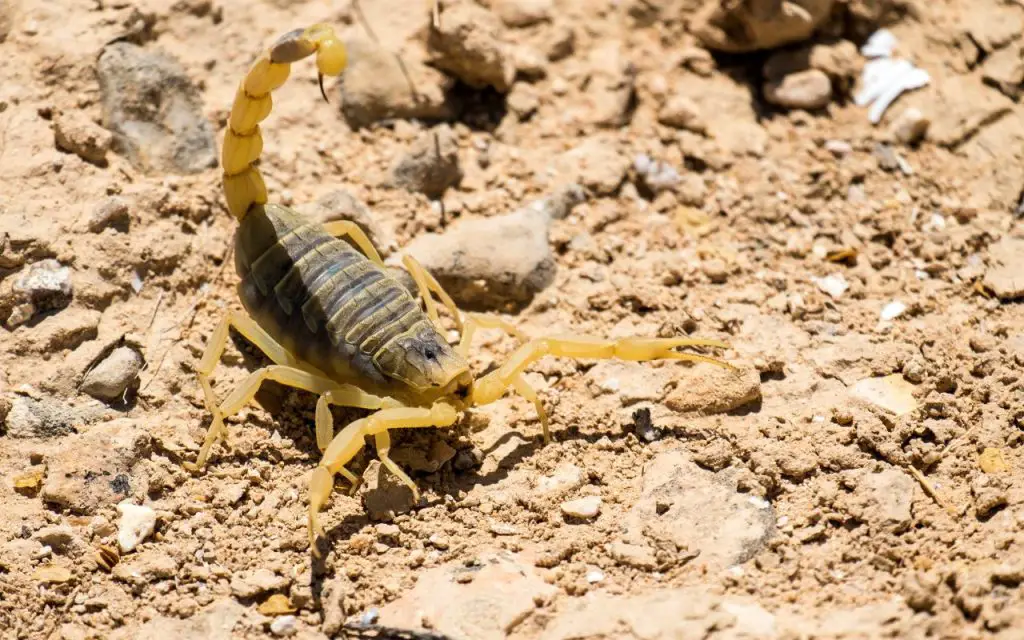
FAQ relating to why scorpions are important
How are scorpions helpful to humans?
Many people are justifiably afraid of scorpions. The fear comes from the venom they produce and the threatening pinchers they possess.
Scorpions may be found in almost every environment and virtually every part of the earth. It is possible to find them in dry climates, desert areas, tropical regions of South Africa, Saudi Arabia, the southwestern United States, Baja California, and southern California.
However, researchers are discovering that despite their unsettling appearance, these insects can really be beneficial to human health.
According to recent research, scorpion venom may one day treat various diseases, including lupus and rheumatoid arthritis.
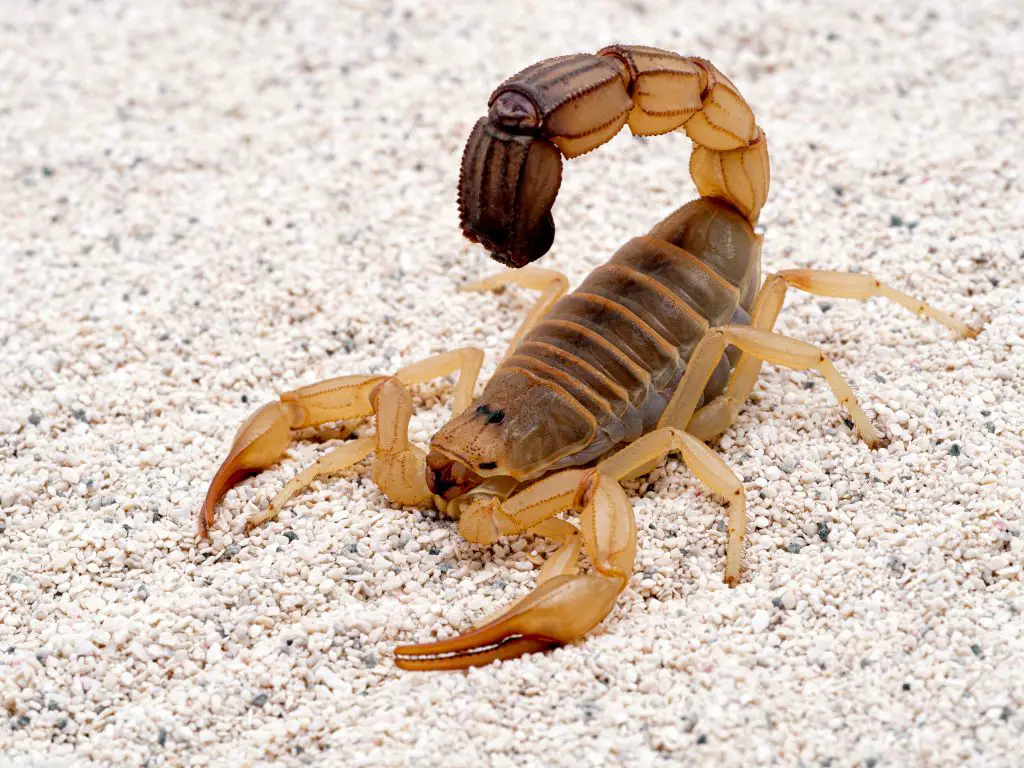
What is so special about scorpion?
These incredible animals are able to thrive in some of the harshest situations on our planet because they have developed some impressive survival skills.
The metabolism of a scorpion may be slowed down to such a degree during times of food scarcity that it allows the animal to subsist on just one bug for an entire year.
In addition to this, they can survive in tough temperatures, both hot and cold. You won’t believe researchers have frozen scorpions overnight just to place them in the sun the following day and see them thaw out and walk away after being exposed to the heat.
Burrowing below the surface of the sand or dirt allows scorpions to survive the sun’s searing heat in the harsh, arid environments that are home to many different species.
Scorpions have been there since before the time of the dinosaurs. Some researchers believe that they may have been among the very first species to make the transition from aquatic to terrestrial life hundreds of millions of years ago.
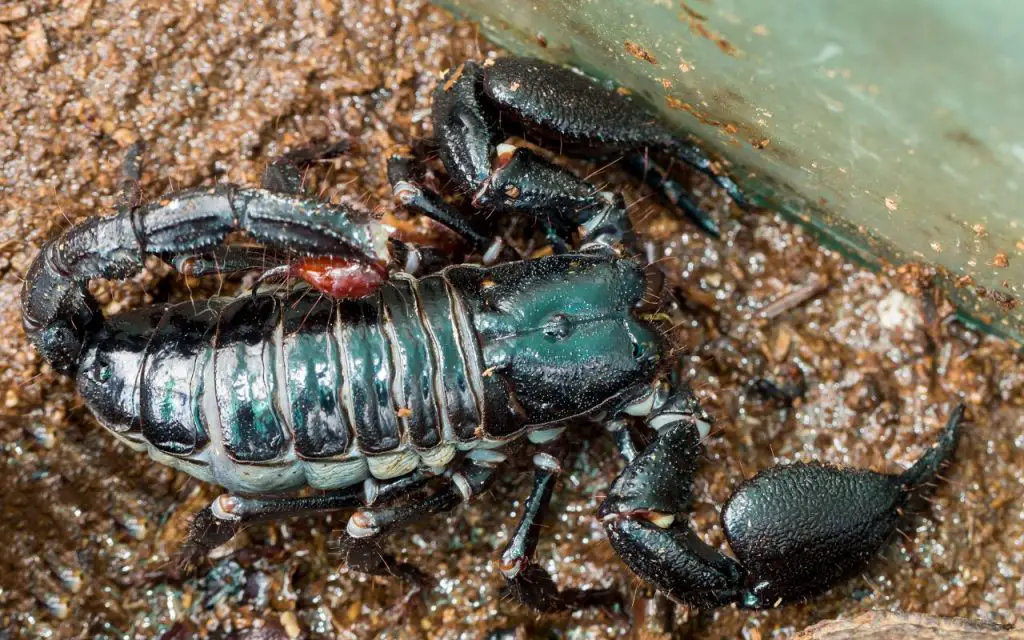
Are scorpions intelligent?
When we examine the behavior of scorpions, we may be able to determine that the species as a whole are extremely clever.
Even if most of the attributes might be learned, there is no denying that they are intelligent in everything they do. Scorpions have the ability to seek their own food and are also able to survive without it when it is in short supply.
In addition, it is well known that scorpions practice cleanliness. And what else? They are able to readily adapt and acclimatize to conditions of high or low temperature.
Even if scorpions were to be frozen for a whole night and then allowed out into the sunlight the following morning, they would start walking.
Do scorpions sleep?
Scorpions are nocturnal creatures, which means that they sleep during the day. At night, they come out with their venomous stinger and hunt for their prey.
Considering how scorpions contribute to nature and human health, the world cannot do without these little creatures.

